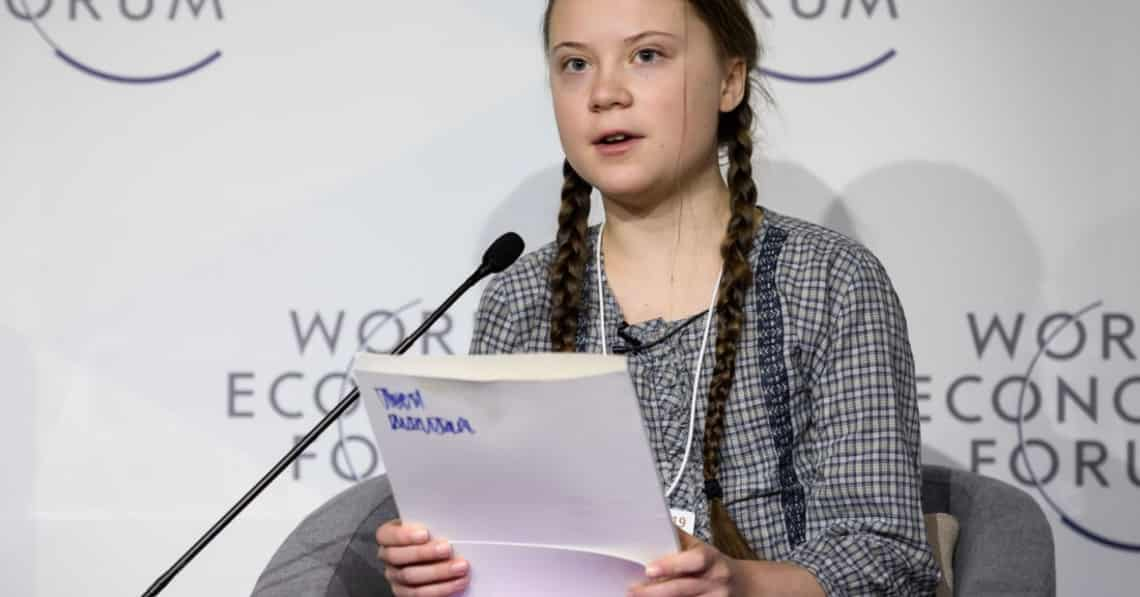In Sweden there is a high school girl who has staged numerous protests in front of her school and parliament, demanding her government and the world leaders tackle climate change seriously. She was the Time Person of the Year in 2018, a three times nominee for Nobel Peace Prize and she gave an address in the United Nations Climate Change Conference. We all know her name. It’s Greta Thunberg, a climate change activist and a vegan who has given up flying to reduce CO2 emission and global warming.
In Thailand, born into poverty with an unremarkable upbringing, against all odds, Pimry Pie became an influential youtuber and online retailer, with millions of followers. She sells all kinds of things on Facebook – from cosmetics to chili paste and clothing, the proceeds of which is used to help the poor. In one of her YouTube videos, Pimry Pie goes to Bangkok’s Klongtoey city slums, where thousands of residents lacked electrical light. Within a day, she bought and installed 150 solar powered lights. All at a cost of less than 200,000 baht. In another video, she visited an island community of Thai Muslims. Noting their lack of clean water, she bought and installed water tanks and filtrations so that they could finally drink and access clean water. Her reason? “I just want you guys to have it.” Tears welled up in her eyes.

What do Greta Thunberg and Pimry Pie have in common? They both are ‘small people’, with humble beginnings, lacking in political and economic power. No committees. No meetings. No ribbon cutting ceremony. No titles. No waiting for the central budget. No delays. No excuses. These two small women have achieved more in their short activism careers than an entire room of politicians and civil servants could accomplish in many years.
At a national level, Singapore, with a population of approximately five million, punches above its weight too. Separated from Malaysia in 1965, lacking in natural resources, with no common culture and language to bind varying ethnic groups, Singaporeans gritted its teeth and worked hard to achieve unity as it thrived to, and achieved in becoming, a first world nation. To move from poverty into wealth and power, the late Lee Kuan Yew had to first rely on British naval power for protection, building everything from scratch. Today, his eldest son the current PM Lee Hsien Loong relies on the US military, in place of the waning UK military power. I don’t blame them. Due to its small population and land size, surrounded by larger neighbours, Singapore’s gaze has always looked outwards – for trade, capital, and brainpower, building upon their educated and productive workforce. Singapore can become a New York in the Asian century as America’s economy falls behind China’s.
4,000 kms away from Singapore is Australia. Although a vast continent with rich mineral and coal resources, Australia’s population is only a third of Thailand’s. Thus, a ‘small nation’ by population. Having lived there for over 10 years, I know Australians’ existential fear: Being overpowered by its surrounding Asian neighbours. Immigration, refugees, and ‘boat people’ are emotionally charged topics during their elections. The current Australian PM Scott Morrison is leading the conservative-hawkish Liberal government. Scared by the alleged Russian interference in the US’s election, Australia made the mistake of siding with Donald Trump and the US’s intelligence community. Australia replaced the communism-scare with the China-scare, the hysteria largely driven by Western media. It blocked China’s investments and banned 5G Huawei. China retaliated by freezing/banning their coal, beef, barley, and told their Chinese international students to study elsewhere. The trade war has done real damage to Australia’s economy and reputation.
Nevertheless, the former Australian Prime Minister Paul Keating from the Labour Party told the conservative government they must engage with, not fear, Asia, encouraging mutual trades like Australia had long been doing, resulting in the creation of immense wealth for both parties. Australia, despite the last five years, is a small nation with heavy punches, balancing well between the US-China rivalry while building strong economic ties with China and the rest of Asia.
From Greta to Pimry Pie and Singapore to Australia – these small people and small nations have all risen up to their potential, producing big effects. If Lee Kuan Yew could solve the smog blanketing his nation-state, and Pimry Pie could ease the poor’s suffering one community at a time, why cannot Chiang Mai solve its PM 2.5 smog? Paul Keating and Lee Kuan Yew shared many similarities. One was that they did not bow down to corporations’ interests when the latter collided with the state’s interest.
Can Thailand punch above its weight too? Can we here in Chiang Mai?
